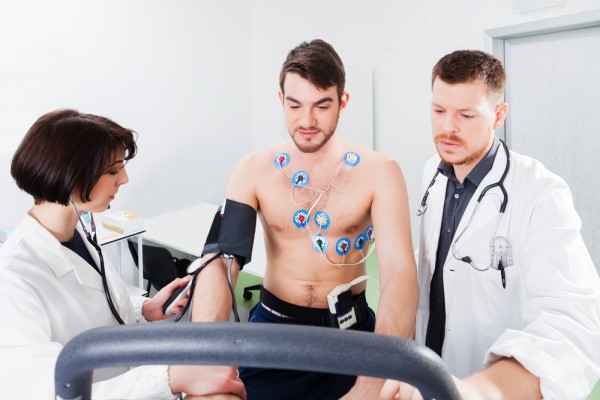What Is a Cardiac Stress Test?

A cardiac stress test compares the performance of your cardiovascular system (heart and blood vessels) during exercise against its performance at rest. The types of stress tests include an electrocardiogram (EKG) or an exercise stress test, stress echocardiography, and nuclear stress test. Cardiac stress tests are used to identify heart problems, such as inadequate blood supply and coronary artery narrowing.
An overview of cardiac stress test
The doctor will determine the necessary tests based on the patient’s medical history and current symptoms. The doctor may recommend a nuclear stress test if the results of an exercise stress test are inconclusive. This analysis may also be used to gauge the efficacy of your current therapy and direct future interventions.
A cardiac stress test can assist in diagnosing coronary artery disease, assessing the progression of congestive heart failure, and evaluating cardiac function after a heart attack. When coronary heart disease goes untreated, it increases the risk of cardiovascular events, including heart attacks and strokes. Plaque, a material containing cholesterol, may build up in the arteries that provide blood to the heart and eventually cause blockages. In time, the plaque will harden, narrowing the arteries and reducing blood flow to the heart.
By gathering different information, a cardiac stress test may identify arterial blockages. The test shows that blood flow is restricted if oxygen levels in the blood are low. If this happens at rest or when patients first start exercising, it is probably an indication of a serious obstruction that needs fixing immediately.
If the patient’s heart rate and blood pressure go up dramatically during exercise, it is because blood flow is being constricted and the heart is working harder than it needs to. At rest, the heart may still obtain enough blood to operate normally even if the individual’s arteries have constricted, but during strenuous activity, the obstruction becomes apparent.
Preparing for the test
The stress test involves walking on a treadmill, so patients need to dress comfortably and wear sneakers. The technician will place electrodes on the patient’s chest. The doctor will recommend which medications or supplements, if any, to stop before the test.
During the test
The treadmill exercise will intensify as the technician gradually raises the inclination and speeds it up every few minutes. Breathing and sweating may increase, but patients will need to alert the technician if they feel any form of discomfort.
In addition to taking the patient's blood pressure at regular intervals, an electrocardiogram machine will continually monitor the patient's heart rate and rhythm. Depending on the patient's current fitness level and the outcome of the test, the duration of the examination might range from five to 20 minutes.
If patients experience chest discomfort or dizziness, the test will stop immediately. If blood pressure dips or rises too rapidly or if there is a case of arrhythmia, the technician will halt the test.
Conclusion
In general, a cardiac stress test is a helpful diagnostic tool that may aid in identifying heart issues and selecting an appropriate course of therapy. It is a relatively risk-free process that has the potential to avert devastating heart problems.
Request an appointment here: https://floridapremiercardio.com or call Florida Premier Cardiology at (561) 325-6495 for an appointment in our Delray Beach office.
Check out what others are saying about our services on Yelp: Read our Yelp reviews.
Recent Posts
A cardiologist provides essential care for those experiencing chest pain, helping to identify, diagnose, and manage conditions related to the heart and blood vessels. Although chest pain may feel alarming, not all causes relate to the heart. A thorough evaluation by a cardiologist ensures diagnosis and appropriate treatment, which is vital for both peace of…
Heart disease is one of the leading causes of death worldwide. A coronary stent is a small, metal mesh tube that is placed into narrowed or blocked coronary arteries to restore proper blood flow. This medical device can help prevent heart attacks and reduce the symptoms of coronary artery disease. By keeping the arteries open…
When symptoms of cardiovascular disease arise, seeking timely medical intervention can make a significant difference. Angioplasty is a procedure designed to restore blood flow in blocked or narrowed arteries, helping to prevent serious complications such as heart attacks. Understanding the reasons why a cardiologist may recommend this procedure can provide clarity and confidence when making…
Cholesterol management is essential for maintaining heart health and reducing the risk of cardiovascular disease. High cholesterol levels can contribute to plaque buildup in the arteries, leading to serious conditions such as heart attacks and strokes. Adapting to a cholesterol management program involves lifestyle changes, dietary adjustments, and medication adherence when necessary. Implementing effective strategies…


